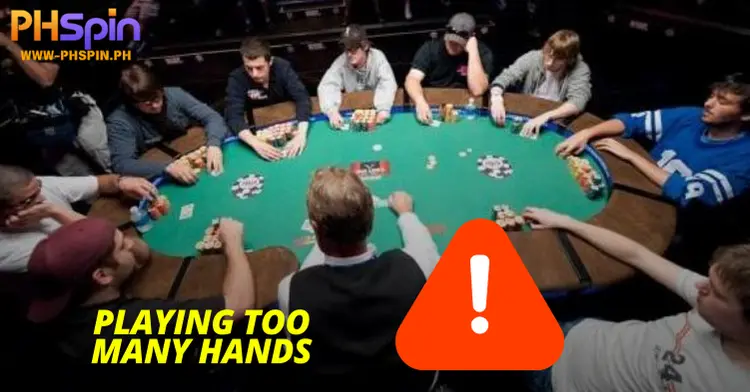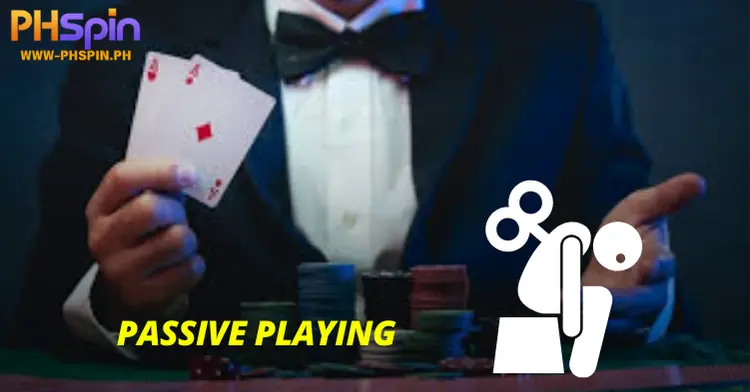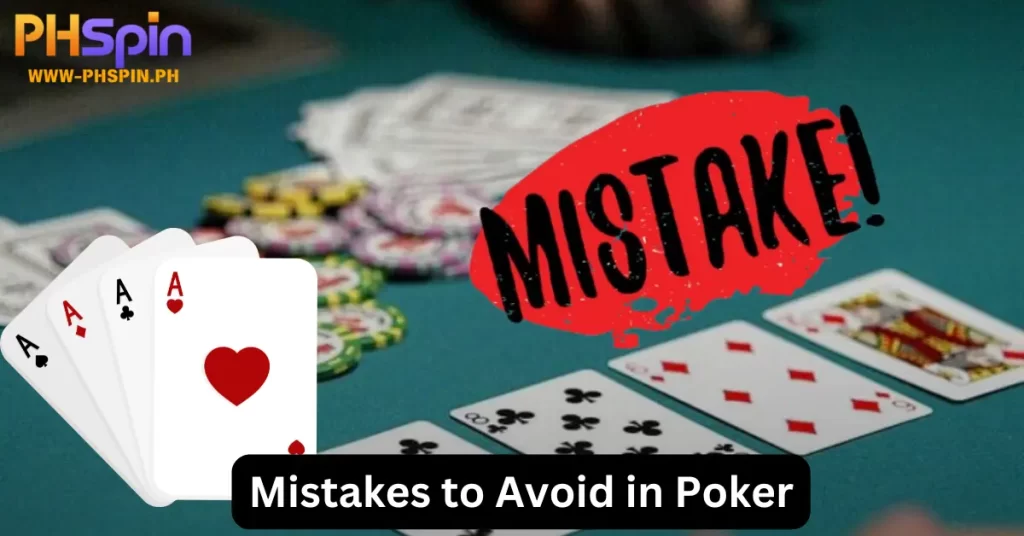While poker is one of those games that require much skill and strategy, even knowledge of psychology is requested; even so, experienced players can easily get into situations that provoke certain mistakes worth a pretty penny.
On the social networking platform Reddit in the discussion about topic Mistakes to Avoid in Poker, the answer that was rated as a positive bet has some key points that you can note as follows:
- Underestimating how much money you need to play
- Thinking AA cannot be beaten
- Playing too many hands
- Position is sooooo much more important than you think it is.
By being aware of and sidestepping these pitfalls, we will help fine-tune their approach to enhance decision-making and make them more likely to win. In this article, PHSPIN discusses some of the most common mistakes to avoid in poker made by poker players and provides readymade solutions for such mistakes so that players can easily work out them and avoid them.
Common Mistakes to Avoid in Poker
Playing Too Many Hands

Probably the most common mistake in poker is playing too many hands, especially when playing out of turn in an early position. Many novices just feel that they should be taking part in every pot, but this generally will make them start losing. The selection of hands plays a great role in long-term success in poker.
Solution: Develop a disciplined approach to hand selection. Stronger hands should always be played in early positions, while your range is only expanded in later positions. Your selective decisions in hand selection will continue to enable you to improve your absolute win rate internally.
Underestimating Hand Strength
Bad overestimations generally occur with low pairs and face cards with lousy kickers. A good example is how a lot of too many players rely heavily on hands like pocket Jacks, which is actually a strong hand but can easily be beaten by a higher pair or combination after the flop.
Solution: Learn the relative strength of different hands in specific situations. Be more careful with marginal hands and try not to overplay them, especially in multiway pots where stronger hands are more likely.
Ignoring Position at the Table
One of the mistakes to avoid in poker is position at the table. Position in poker is one of the most important determinants of the order of action. Players in a later position feel at an advantage if they get to see what other players are doing prior to their decision. At the same time, many players don’t pay enough attention to their position and hence make some very costly decisions from bad positions.
Solution: Base your strategy on positional awareness. In early position, you will want to play tight since you have less information. In later positions, you can slightly widen your range of hands and then use the advantage to apply pressure to opponents.
Negligence to Bankroll Management
One will hardly find a poker player who can afford to sustain a living for a long period without an effective bankroll management system. Many players, more so the beginners, may place bank bets that are too big in relation to a bankroll, which then brings about quick bankroll depletion.
With the help of platforms like JILICC, providing the player with the resources and means necessary to manage bankroll well with the view of earning a sustainable strategy, the player has more command over his or her finances and minimizes the risk due to rapid bankroll depletion.
Solution: Set a bankroll budget for poker games in which to set limits will tell you what kind of game stakes you are playing. At least 20-30 times the maximum buy-in in cash games; this gives that extra breathing room when those inevitable losses occur.
Overly bluffing
Bluffing is an essential skill in the realm of poker. Utilizing it too frequently can result in its backlash, particularly where opponents catch onto one. There are those players who bluff every now and then they may feel that this is a shortcut to winning pots, only to be called by better hands.
Solution: Sometimes bluff, but don’t overdo it. Save your bluffs for those situations where they are more likely to work against tight players or if you’ve got a good table image. Semi-bluffs, where you are holding a drawing hand that has some potential to improve, are even less risky than pure bluffs.
Inability to Adapt to the Opponent
No poker game is the same, for each opponent brings his style of play with him to the table. Probably the most common mistakes to avoid in poker a player makes is he does not adapt to the different styles. If you always play tightly, then skilled opponents can read you easily and know exactly how to play against you.
Solution: Observe your opponent and make changes according to his tendencies. If one player is tight, then you play tight against him; if loose, use an aggressive approach against him. Being flexible in strategy will enable you to exploit other people’s weaknesses.
Overplaying after Tilt
Tilt is a state of emotion where frustration from a loss one experienced involves a player’s decision-making, which usually leads to poor judgment. Players on tilt may become very aggressive or reckless in trying to gain back lost chips immediately.
Solution: Know the signs of tilt, getting frustrated with the game or making impulsive decisions. If you feel any of this is happening, then take some time to gather your thoughts. Emotional control is very significant in making the right decision on the table.
Ignoring Pot Odds and Expected Value
The magnitude of pot odds and understanding EV play a deep-rooted role in poker in making informed, strategic decisions. Most players do not take these factors into consideration, which might lead them to calls or bets that are not well rewarded on average over time.
Familiarizing yourself with basic pot odds calculations gives you an idea of whether calling or betting is profitable. Knowing your odds of completing a hand allows you to make better expected value decisions, thus improving your win rate in the long run.
Passive Playing

You take away from your own control of the pot by passive plays like calling or just checking way too much and never betting or raising. In that, you allow other people to dictate the pace of play and make decisions for you. The usual end for passive players is paying someone off or failing to get value on a hand that beats a lot of random hands.
Solution: Employ a well-balanced approach in being aggressive with selected hands. It is possible to squeeze pressure through betting and raising to be in control of the card game. However, this should be further balanced, as too much aggression when one does not have strong hands will lead to unnecessary losses.
Ignoring the Importance of Patience
The last but most important mistakes to avoid in poker is patience. Poker is one of those games where a player gets paid off his patience, yet again, most of the players lack this key ingredient called patience. The impatient guy suddenly starts playing weak hands, making impulsive moves, or trying to force action when frankly, there’s no need for that.
Solution: Realize poker is a game of patience and disciplined play. Instead of trying to force the action, wait for positive expectation situations to develop. The successful players know disciplined patience ultimately pays better dividends.
Finally, by avoiding these mistakes to avoid in poker, you can enhance your poker strategy, improving your decision-making and increasing your chances of winning. Read more about our tips and tricks for Winning Poker Strategy and Tactics from the Pros.

